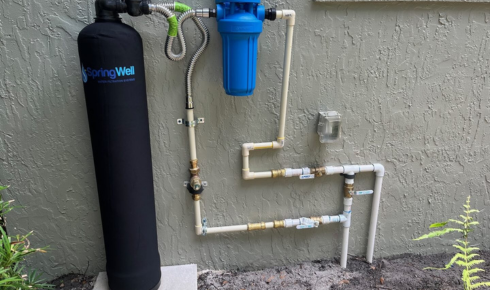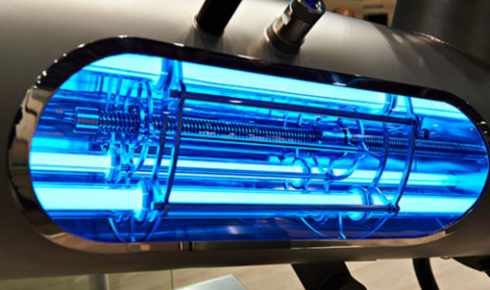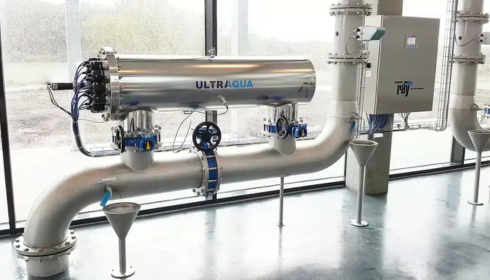Living in Florida has its perks—sunshine almost all year, beaches that feel like postcards, and a laid-back lifestyle that makes weekend hammocking almost mandatory. But one thing that Floridians often face is tricky water quality. Hard water, occasional sediment, and the faint taste of chlorine can make drinking straight from the tap… less than enjoyable. That’s where a whole house water filtration system comes into play.
If you’ve ever shopped for water filters, you know it’s easy to get overwhelmed. There are countless brands, types, and configurations, each promising crystal-clear, fresh-tasting water. But here’s the catch: not all water filters are created equal, and what works in one state might not be ideal in Florida. The minerals and contaminants in local water—think high calcium, magnesium, and occasional iron—require a solution that’s specifically designed to handle them.
Understanding Florida’s Water Challenges
Before diving into systems and brands, let’s get a sense of what you’re actually dealing with. Florida is notorious for its “hard water.” Hard water isn’t dangerous, but it can wreak havoc on plumbing, appliances, and even your skin and hair. You might notice water spots on dishes, scaly build-up in showers, or even a slightly metallic taste. On top of that, depending on your local municipality or well water source, there might be traces of chlorine, chloramines, or other chemicals used to purify water.
Now, some people shrug these off and just deal. But anyone who’s tried scrubbing a showerhead or replacing a dishwasher element knows it’s a hassle. A best whole house water filter for Florida isn’t just about drinking water—it’s about protecting your home and making everyday chores smoother.
What a Whole House System Actually Does
Unlike a point-of-use filter, which treats water at a single faucet, a whole house system is installed at your main water line. This means every tap, shower, and appliance receives filtered water. Imagine washing your hair with soft, chemical-free water or never worrying about your coffee tasting faintly like chlorine again. Pretty appealing, right?
Whole house systems usually tackle three things:
- Sediment and particles – Rust, sand, and sediment get trapped before they reach your taps.
- Chemical contaminants – Chlorine, chloramines, and other chemicals that affect taste and odor.
- Hardness and minerals – Some systems incorporate water softening to prevent scaling and buildup.
It’s worth noting that no filter is magical. You might need a multi-stage setup to handle all local issues effectively, especially in areas with extremely hard water or unusual mineral content.
Choosing the Right Filter for Florida Homes
When selecting a whole house water filtration system Florida residents swear by, there are a few factors to keep in mind:
- Water testing first: Before anything else, test your water. You can do a DIY kit or hire a professional. Knowing exactly what’s in your water guides your choice.
- Capacity and flow rate: Make sure the system can handle your household’s daily water usage. A small filter might work for a couple but fail for a family of five.
- Maintenance: Some filters need regular cartridge changes; others require less frequent upkeep. Factor in cost and convenience.
- Certifications: Look for NSF or WQA certifications—they’re indicators that the system actually performs as promised.
For many Florida homeowners, multi-stage systems that combine sediment filtration, activated carbon, and sometimes a softening element are the sweet spot. They tackle everything from taste and odor to mineral deposits, which is essential in high-hardness areas.
Real-World Benefits
I’ve had friends in Orlando and Tampa who made the switch, and they noticed a difference almost immediately. One mentioned her morning coffee tasting “alive” again after years of dull, chlorinated flavor. Another commented that she no longer needed to buy bottled water for her kids’ lunches—a small savings that adds up. And then there’s the less glamorous but equally important benefit: less buildup in pipes and appliances, meaning fewer plumbing headaches.
Installing a system is an investment, yes, but think of it like insurance for both your health and your home. Plus, in Florida’s climate, where you’re using water almost everywhere (gardens, pools, showers), it pays off in comfort and longevity.
Popular Types of Whole House Filters
Not all systems are created equal, so let’s break down a few common types:
- Sediment filters: Great for removing sand, dirt, and rust particles. Usually inexpensive and easy to maintain.
- Activated carbon filters: Excellent for chlorine, odors, and certain chemicals. They improve taste dramatically.
- Reverse osmosis systems: Often overkill for whole house use, but perfect for households with specific chemical concerns. Usually paired with drinking water taps.
- Water softeners: If your home suffers from extreme hardness, a softener paired with a filter prevents scaling in pipes and appliances.
A combination of these often provides the best overall water quality. For Florida residents dealing with hard water and chemical tastes, a dual-stage system (sediment + activated carbon) or a three-stage setup including softening tends to get the highest praise.
Budget Considerations
Here’s the thing: “best” doesn’t always mean “most expensive.” Some affordable systems are surprisingly effective, while high-end models can offer unnecessary bells and whistles. A practical approach is to balance upfront cost, long-term maintenance, and your household’s water needs.
A helpful tip: don’t skimp on filters rated for Florida’s hardness levels. Cheaper, generic systems might clog quickly or fail to address calcium and magnesium buildup, which defeats the whole purpose. Investing in a best whole house water filter suited to local conditions ensures you get longevity and performance.
Installation: DIY vs. Professional
Many systems are designed for DIY installation, but if you’re not comfortable with plumbing, hiring a professional is worth it. Incorrect installation can cause leaks, reduced performance, or even damage to your system. On the flip side, a professional installation ensures optimal flow rate, proper pressure, and peace of mind.
Even after installation, regular maintenance is key. Filters need replacing, and pre-filters should be cleaned periodically. The good news is that most systems are straightforward to maintain once you understand the basics.
Making the Decision
At the end of the day, choosing the right filter is personal. It’s a combination of your water’s chemistry, your household’s usage, budget, and how hands-on you want to be with maintenance. Talking to neighbors, reading reviews specific to Florida, and considering long-term benefits often leads to the most satisfying choice.
Many homeowners start with a modest system and upgrade over time as they better understand their water’s needs. That gradual approach works well because it prevents overspending on unnecessary features while still providing immediate improvements.
Final Thoughts
Investing in a best whole house water filter for Florida isn’t just a home improvement—it’s about enhancing daily life. From sipping cleaner-tasting water to protecting your appliances and even improving skin and hair health, the benefits are tangible.




